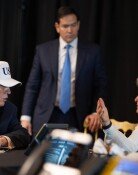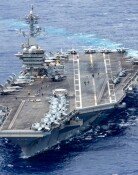Korea`s Industrial Competitiveness on the Verge of Collapse
Korea`s Industrial Competitiveness on the Verge of Collapse
Posted June. 17, 2003 21:30,
Korea`s corporate and industrial competitiveness was recently analyzed to have been teetering on the verge of collapse.
The reason is that local companies have drastically cut their facility investments due to the global economic recession, which has led to aggravated growth potential locally.
In a report entitled the Current Status of Korea`s Economy and Policy Tasks, released yesterday by the Korea Economic Research Institute (KERI), President Jwa Sung-hee of the think tank said that even after successful recovery from the late-1997 financial crisis, Korea`s economic vulnerabilities have derailed the economy off its path towards becoming the financial hub of Northeast Asia.
Real economic indicators are also showing a decrease.
Industrial output growth rates have nose-dived from 9.5% in the fourth quarter of last year to around 1% in April of this year, while GDP growth rate for the second quarter of this year (from April through June) is forecast to stay on the downside for the next two consecutive quarters. Accordingly, a protracted recession has become highly likely in the near future.
The report pointed out that a decrease in growth potential followed by reluctant investment in capacity building is the weakest part of Korea`s economic strength.
Facility investment in the corporate sector decreased by 4.2% in April of this year, following a 3.4% reduction in the first quarter, from January to March. Consequently, the manufacturers` production capacity growth rate dropped to below 4% in 2001 and registered at about 2% in the second half of last year.
Another problem is the inflexible shift in Korea`s leading industries. At a time when most industries, previously having led in the nation`s development has aged rapidly, newly emerging industries including those in information technology, are not growing quickly enough to replace their predecessors in terms of production volume.
Individual players are competing more fiercely to gain their share of `the economic pie`, which shrank in a time of weak growth, explained President Jwa. Policies for sustainable economic growth are in urgent need to address this issue.
A 2% drop in the economic growth rate costs the nation 12 trillion won in GDP and 130,000 new job opportunities. Macroeconomic policy therefore should be made a priority, argued the head of KERI.
President Jwa said that since the financial crisis, Korean companies have concentrated too much on reducing their debts and staff in restructuring efforts, thereby compromising their ability for innovation. He also proposed that productivity and efficiency be boosted, and that corporate revamping should be conducted in more practical ways for industrial competitiveness to be strengthened.
Na-Yeon Lee larosa@donga.com







